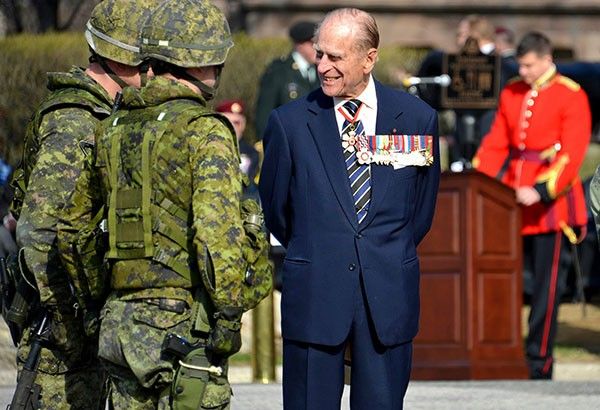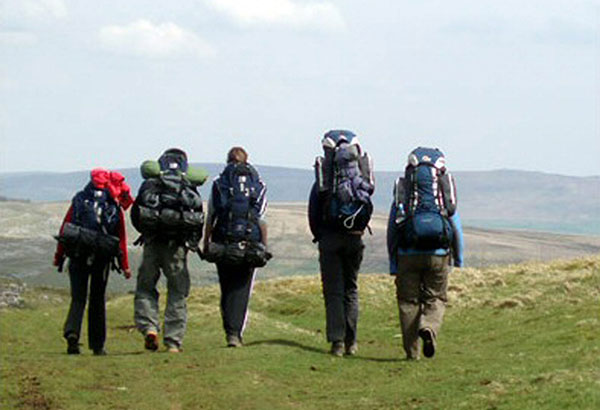Helping young people be the very best they can be

MANILA, Philippines - The distinction was established in 1956 by a member of the British royal family, Prince Philip, the Duke of Edinburgh, who explained that the award was established to give the younger generation “a sense of responsibility to themselves and their communities.”
Participants complete a series of self-development exercises with a focus on serving the community. Each category has its own stringent set of requirements, with the most esteemed tier completed at one’s own pace, but before the aspiring hopeful turns 25 years old.
The 60-year-old honor was originally open to boys aged 15 to 18. It was initially administered by John Hunt, who was the leader of the first successful Mount Everest climb back in 1953, which led to the historic triumph of Sir Edmund Hillary and Nepalese sherpa Tenzing Norgay at the fabled summit.
Within the first year alone, approximately 7,000 participants joined the program. A couple of years later, the program was extended to girls. Currently, the award is open to 14- to 24-year olds. Since its inception, over 2.5 million recognitions have been granted in the UK alone, while yearly, approximately 600,000 people start on their voyage.
The citation is administered by national organizations and independent operators accredited by the Duke of Edinburgh International Awards Foundation, a global network of support systems. Areas without an award-giving body are handled by neighboring nations with accreditation.
Today, The Duke of Edinburgh Award is handed out in 144 countries worldwide, and it has finally reached our shores, though managed by the Australian chapter.
 A Duke of Edinburgh group on their expedition in 2008.
A Duke of Edinburgh group on their expedition in 2008.The awards are modelled after German educator Kurt Hahn’s Six Declines of Modern Youth, which are social diseases that youngsters are exposed to. These are Declines in Fitness, Initiative and Enterprise, Memory and Imagination, Skill and Care, Self-Discipline and Compassion.
With the assistance of program coordinators and youth leaders, the participants select and set objectives in the following areas: service, where they volunteer or mentor in a cause such as outreach programs and relief aid, where they learn more about the effects of their acts on the neighborhood; physical recreation, where they specialize in competitive sports, fitness regimens and dance, to improve their own health, fitness, team skills, self-esteem and confidence; skills, where they hone their social and practical abilities, such as photography or painting, which teaches a sense of achievement and well-being; and lastly, complete an adventurous journey, where they leave their comfort zones for a greater purpose, to learn about their environment and even discover something new about themselves.
The distinctions range from bronze and silver, to gold, with each task becoming more challenging as the level increases.
However, when one aims for gold, one must take part in residential projects, spending at least five days away from home for a shared mission like international charity work, national park restoration or youth parliaments.
During my several years at a national tourist office in London to promote our islands to visitors and investors, I would see well-dressed adolescents (in business attire, for a change), bursting with energy, gather across Green Park to head as a contingent for the awarding ceremonies at Buckingham Palace, home of Queen Elizabeth II.
The distinguished trustees of the foundation is presently headed by Prince Edward, the Earl of Wessex, who previously chaired the council for 17 years. He is a Gold recipient, and has taken over his father’s role in the program. In fact, he has traveled all over the globe to confer the award.
Completing the roster are Albany Associates’ Paul Bell, who started his career as a journalist during South Africa’s transition from apartheid; British Parliament veteran Lord Boateng, who has a long-standing commitment to Africa, having grown up in Ghana; ChapelHillDenham Group-Lagos chair Olawale Edun who heads initiatives which advocate health literacy and assisting street children in Nigeria and Lagos, respectively.
Completing the lineup are seasoned travel figure Munna Issa, who is a member of various charitable advisory boards and a trustee of the distinction in Jamaica; PricewaterhouseCoopers partner Andrew Smith, who focused on firm-wide sustainability and climate change activities; AB Mauri China East Asia Pacific general manager Garth Weston, who brings a wealth of commercial experience to the team; and University of South Wales professor of European Youth Policy Howard Willamson, who has likewise conducted research on the young generation’s crime, unemployment, substance abuse, homelessness, school curricula and work.
The first-ever Gold awardee in the country is Marian Patricia Bea Francisco, a veteran of social work, after two years of groundwork.
She shares the benefits she reaped after years of preparation. “I like opportunities to travel to meet fellows who were likewise gilded,” she smiles.
At present, three others have likewise been bestowed Gold in the Philippines. They are Maria Elena Lozada, Raniel de los Reyes and Emmanuel Jabrica.
Francisco, coordinator of the merit, noted that aspiring participants have become more driven with their scholastic performance and interpersonal relationships.
“It assisted them with their self-growth,” she says of the award. “When they finally achieve Gold, they have a different perspective, and thus a changed attitude. They grow to be better leaders.”
More than the certificate and pin given to achievers, she says the acclamation bears weight in all 52 Commonwealth countries, such as Australia and Singapore, where the recognition has been institutionalized in the school curricula.
“The award is known internationally,” she explains. “If you have accomplished it, doors will open for you. There are schools and companies that prioritize recipients.”
Foreign universities, colleges, schools and academies require their trainees to camp, trek or raft, as one part of the adventurous journey requirement. But as an example, the local School of Deaf and Applied Studies (SDEAS) of the De La Salle College of Saint Benilde encourages their students to reach out to communities around our islands.
Francisco influences volunteers to go to far-flung areas to conduct lectures and seminars on topics such as sign language and deaf awareness, while they advocate deaf identity and culture in provinces where this marginalized group is underserved.
The students and graduates have collaborated with residents in Daet, Camarines Sur and Castillejos, Zambales in the past. This year, they ventured to Kabankalan City, Negros Occidental.
“We took them outside of their regular zones and gave them a chance to give back,” Francisco explains. “We noticed that when they are outdoors, that’s when they discover more. When they hear of other stories, they learn to appreciate what they have in life.”
Francisco, Leadership Program coordinator of SDEAS, is optimistic that once the Philippines receives accreditation as a national authority, the requirements of The Duke of Edinburgh Award may be introduced in centers of learning as an extra-curricular activity.
“It will hopefully instill the same self-growth and sense of leadership that these students have developed from this effort,” she ends.
Visit www.dofe.org to know more about the program.
- Latest
- Trending














